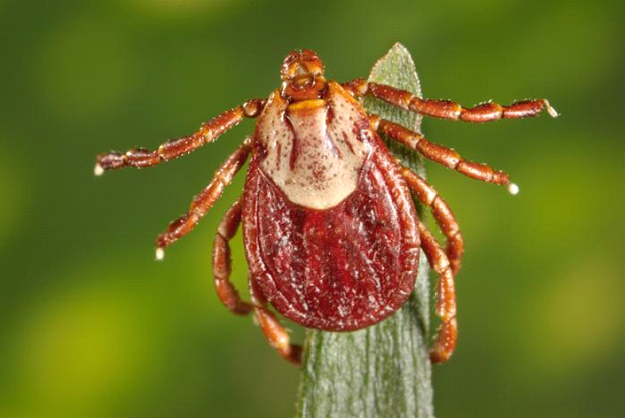Colorado Tick Fever Symptoms, Causes, Diagnosis and Treatment

What Is Colorado Tick Fever?
It is a viral infection caused by the bite of an infected wood tick, Dermacentor andersoni. The particular specie is commonly known as ‘Rocky mountain wood tick’. Symptoms start to emerge within 72-144 hours after tick bites, few of which are vomiting, nausea, headache, chills and fever.
In majority instances, symptoms rooted by Colorado tick fever resolve within ten to twelve days, without needing any medical treatment.
What Are The Alternative Names Of Colorado Tick Fever?
Colorado tick fever is also known by the following names:
- American mountain fever.
- Mountain fever.
- Mountain tick fever.
What Are The Symptoms Of Colorado Tick Fever?
As mentioned earlier, symptoms start to emerge within 72-144 hours after a tick bite. A person with Colorado tick fever can experience recurrent fever. Besides, few other symptoms are:
- Sweating.
- Skin pain.
- Photophobia.
- Rash.
- Nausea.
- Vomiting.
- Muscle aches.
- Headache.
- Generalized weakness.
When Is The Right Time To Seek Medical Assistance?
Immediately call up for an appointment with your doctor in case of the following situations:
- You have failed to remove the tick entrenched in your skin completely.
- If your child has developed the above mentioned symptoms of Colorado tick fever.
- If symptoms have turn worse.
- Symptoms are not responding to treatment.
- New symptoms have emerged.
What Causes Colorado Tick Fiver?
Colorado tick fever is sourced by the bite of an infected wood tick, dermacentor andersoni.
What Are The Risk Factors Of Colorado Tick Fever?
It is observed that Colorado tick fever is frequently reported between the months of March and September, where majority instances occur in June. An outdoor activity is a core risk factor of the disease. Secondly, people who belong to the state of Colorado are more prone to contract Colorado tick fever.
How Is Colorado Tick Fever Diagnosed?
During the visit, the doctor will perform a thorough physical exam. He will need details regarding your symptoms and any tick-infested area you have recently visited. In order confirm its diagnosis, the doctor can suggest:
- Antibody tests.
- Complete blood count.
- Liver function tests.
- Creatine kinase.
How Is Colorado Tick Fever Treated?
Usually, no medical treatment is needed to treat Colorado tick fever. In case of extreme pain, you can take a pain reliever. Furthermore, treatment becomes a necessity in case the disease leads to complications.
Children must not be given aspirin as it can lead to a complication named Reye syndrome, whilst it is also linked with the complications of Colorado tick fever.
What Is The Prognosis Of Colorado Tick Fever?
Often, Colorado tick fever is harmless and resolves by itself.
Rarely, Colorado tick fever leads to complications, however when it does, complications include:
- Hemorrhagic fever.
- Encephalitis.
- Aseptic meningitis.
Prevention:
While visiting the tick-infested areas, remember to cover your body completely by wearing:
- Long sleeves.
- Closed shoes.
- Socks and long pants.
By : Natural Health News




